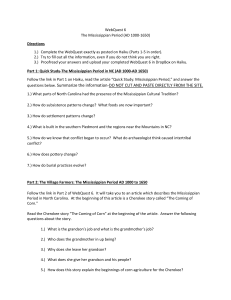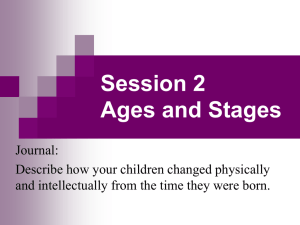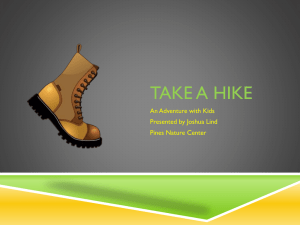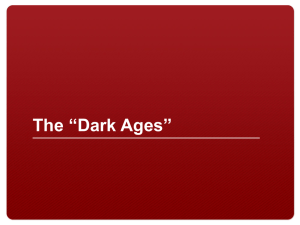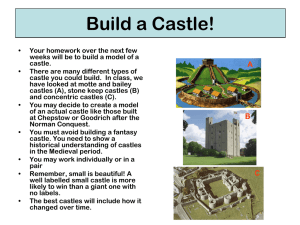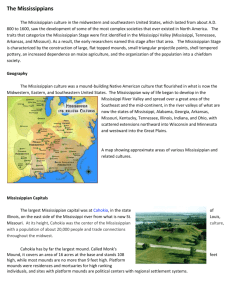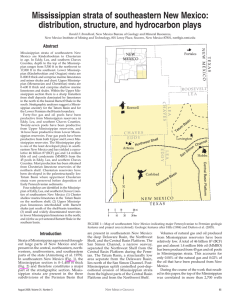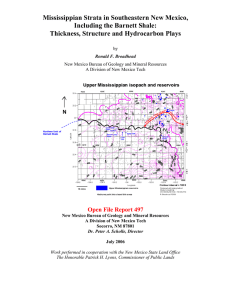Middle Ages vs. Mississippian Period
advertisement
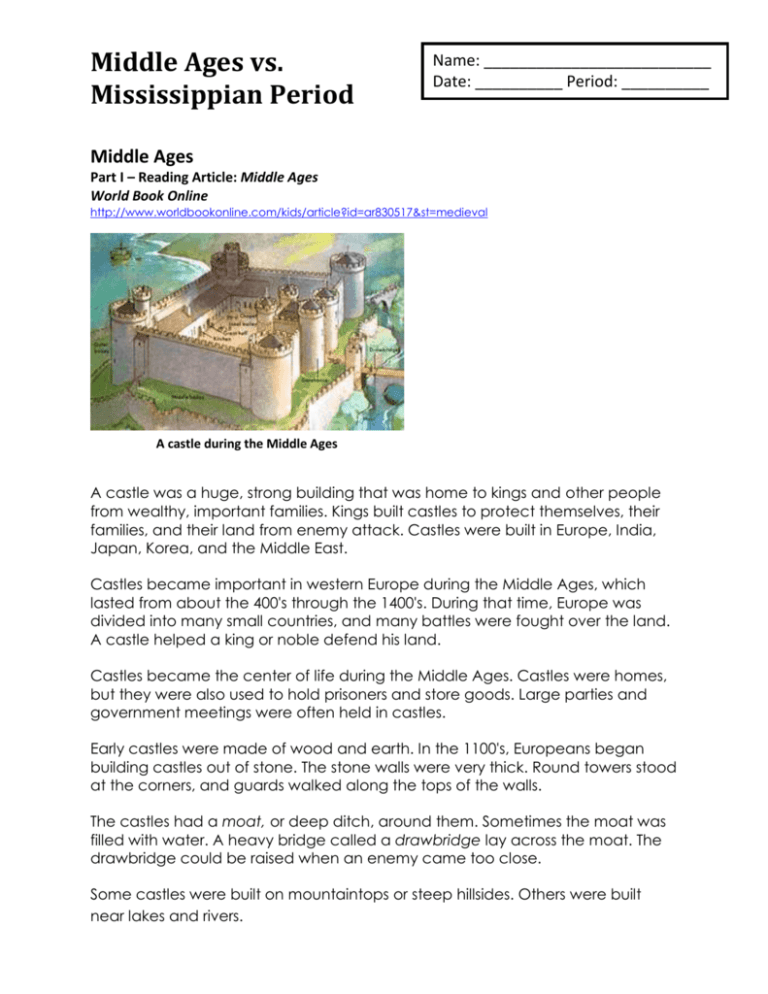
Middle Ages vs. Mississippian Period Name: __________________________ Date: __________ Period: __________ Middle Ages Part I – Reading Article: Middle Ages World Book Online http://www.worldbookonline.com/kids/article?id=ar830517&st=medieval A castle during the Middle Ages A castle was a huge, strong building that was home to kings and other people from wealthy, important families. Kings built castles to protect themselves, their families, and their land from enemy attack. Castles were built in Europe, India, Japan, Korea, and the Middle East. Castles became important in western Europe during the Middle Ages, which lasted from about the 400's through the 1400's. During that time, Europe was divided into many small countries, and many battles were fought over the land. A castle helped a king or noble defend his land. Castles became the center of life during the Middle Ages. Castles were homes, but they were also used to hold prisoners and store goods. Large parties and government meetings were often held in castles. Early castles were made of wood and earth. In the 1100's, Europeans began building castles out of stone. The stone walls were very thick. Round towers stood at the corners, and guards walked along the tops of the walls. The castles had a moat, or deep ditch, around them. Sometimes the moat was filled with water. A heavy bridge called a drawbridge lay across the moat. The drawbridge could be raised when an enemy came too close. Some castles were built on mountaintops or steep hillsides. Others were built near lakes and rivers. Mississippian Period Part I (cont.) – Reading Article: Mississippian Period The New Georgia Encyclopedia http://www.georgiaencyclopedia.org/articles/history-archaeology/mississippian-period-overview Mississippian people, who were mainly farmers, often lived close to rivers, where periodic flooding replenished the nutrients in the soil and kept their gardens productive. They lived in small villages that rarely had more than a few hundred residents and in some areas also lived in single-family farms. Although there was a great deal of variation across Georgia, a typical Mississippian village consisted of a central courtyard, residential area, and defensive structures. The courtyard, located in the center of the town, served as a gathering place for many purposes, from religious to social. Houses were built around the courtyard. Some, though not all, Mississippian villages also had defensive structures. Usually these took the form of a pole wall, known as a palisade; sometimes there was a ditch immediately outside the wall (moat). These helped to keep unwelcome people and animals from entering the village. Some Mississippian towns featured mounds. These were made from locally quarried soil and could stand as tall as 100 feet. Most were built in stages, sometimes over the course of a century or more. Although Mississippian mounds were made in various shapes, most were rectangular to oval and flat-topped. These mounds were used for a variety of purposes: as platforms for buildings, as stages for religious ceremonies, and as cemeteries. Only chiefs built their houses and placed temples to their ancestors on mounds, conducted rituals from the summits of mounds, and buried their ancestors within mounds. A village during the Mississippian Period Name: __________________________ Date: __________ Period: __________ Middle Ages vs. Mississippian Period – Double Bubble Part II Directions: Complete the following Double Bubble Thinking Map (*use the Middle Ages and Mississippian articles to help you). Include specific similarities and differences between the two cultures. Differences – 3 Ways the Middle Ages were unique. Differences – 3 Ways the Mississippian Period was unique. Similarities Between the Mississippian Period and Middle Ages Middle Ages Mississippian Period Middle Ages vs. Mississippian Period Written Response Name: __________________________ Date: __________ Period: __________ Part II Directions: Complete the following written response to the readings on the Mississippian Indians and the Middle Ages (*use the Double Bubble Thinking Map to help you). Be sure to answer the questions in complete sentences and cite text evidence (specific examples from the text) that supports your argument. Prompt #1 – Discuss how the Middle Ages castle structures and the Mississippian Indian settlements are similar. Explain 3 ways using text evidence. _______________________________________________________________________ _______________________________________________________________________ _______________________________________________________________________ _______________________________________________________________________ _______________________________________________________________________ _______________________________________________________________________ _______________________________________________________________________ _______________________________________________________________________ Prompt #2 – Discuss how the Middle Ages castle structures and the Mississippian Indian settlements are different. Explain 3 ways that they are each uniquely different. Provide text evidence. _______________________________________________________________________ _______________________________________________________________________ _______________________________________________________________________ _______________________________________________________________________ _______________________________________________________________________ _______________________________________________________________________ _______________________________________________________________________ _______________________________________________________________________ Prompt #3 – After examining the readings and discussing the Mississippian Indians in class, would you have wanted to live in a Middle Ages castle structure or a Mississippian settlement? Explain your answer. _______________________________________________________________________ _______________________________________________________________________ _______________________________________________________________________ _______________________________________________________________________ _______________________________________________________________________ _______________________________________________________________________ _______________________________________________________________________ _______________________________________________________________________ _______________________________________________________________________ _______________________________________________________________________
